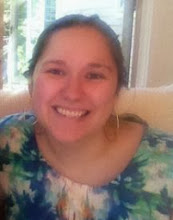1. Tell us a bit about yourself and your road to being published.
I started writing as soon as I could spell words, and loved creating short stories with big twists, poetry, and creepy, scary things to freak out my friends. I majored in English and Psychology, and ultimately went for my doctorate and psychology, writing “on the side” when I had time. I dabbled with getting published in my 20’s, but went after it seriously in my 30’s with a few friends who were equally serious. One of those friends landed an excellent children’s book agent, Erin Murphy, and gave me a referral. Erin took a chance on me, and quickly sold one of my first projects, a quirky YA piece with a strong southern flavor, to a small press, OnStage Publishing. The editor, Dianne Hamilton, was willing to let that piece be as weird as it wanted it be, and to this day, I love her for that. Erin then sold a three-book fantasy series co-written with the friend who referred me to her, to Llewellyn. After that, she made my first sale to a New York City house. Unfortunately, the book was orphaned by the editor who bought it and then left the company—and Erin had to sell it all over again! The book was Stormwitch, and the editor who bought it was Victoria Wells-Arms, at Bloomsbury. All these years and books later, Erin is still my agent, Victoria is still my editor, and Bloomsbury is still my publisher.
2. You newest book, Freaks Like Us, was released September 4. Choose five words to describe it.
Startling, Poignant, Fast-Paced, Unflinching, Challenging
3. You're a practicing psychologist, how did that impact the way you wrote about mental disorders in Freaks Like Us?
My career in psychology and my work with people who struggle with severe mental illness has given me great respect for their strength and capacity for healing and forgiveness. People looking in from the outside often see the oddity of mental illness, or the seeming humor, or the other-ness, but day to day, what I see is the pain. I wanted to capture that pain, and the strength and hope, too. I hope my years of experience bring an authenticity to the piece that otherwise might be lacking
4. In what ways do you think books like Freaks Like Us can help combat the stigma and stereotypes that go along with mental disorders?
Though mental illness is a player/character in the story, Freaks Like Us isn’t about mental illness, or even living with it. Ultimately, the story is about love, loss, belief, survival, determination—all the things that make human beings human. It’s about growing up, and never giving up. Jason has mental illness, but the illness doesn’t define him. More and more, I would like to see all teens, all people,no matter what their gender, religion, race, preferences, or challenges might be, in stories, getting the chance to star in stories, which are about them and their lives. I hope Freaks moves us all in that direction, of seeing Jason and his friends as people with lives, hopes, futures, successes and failures, first, before mental illness shades those impressions.
5. Do you have anything new in the works?
I’m currently working on a novel told in a series of scary/ghostly short stories, set in a spooky old
asylum (and no, the patients are definitely NOT the scary things!). I’ve had the privilege of working in several such settings, and work in a hospital like that now—the building is closing in on 200 years old, and daily proves itself to be a character in my daily life! Gotta love it. Except when I have to stay there overnight during bad snowstorms. And the power goes off. And I hear the noise outside my office door…


















1 comments:
Interesting.
I love the word unflinching.
Post a Comment